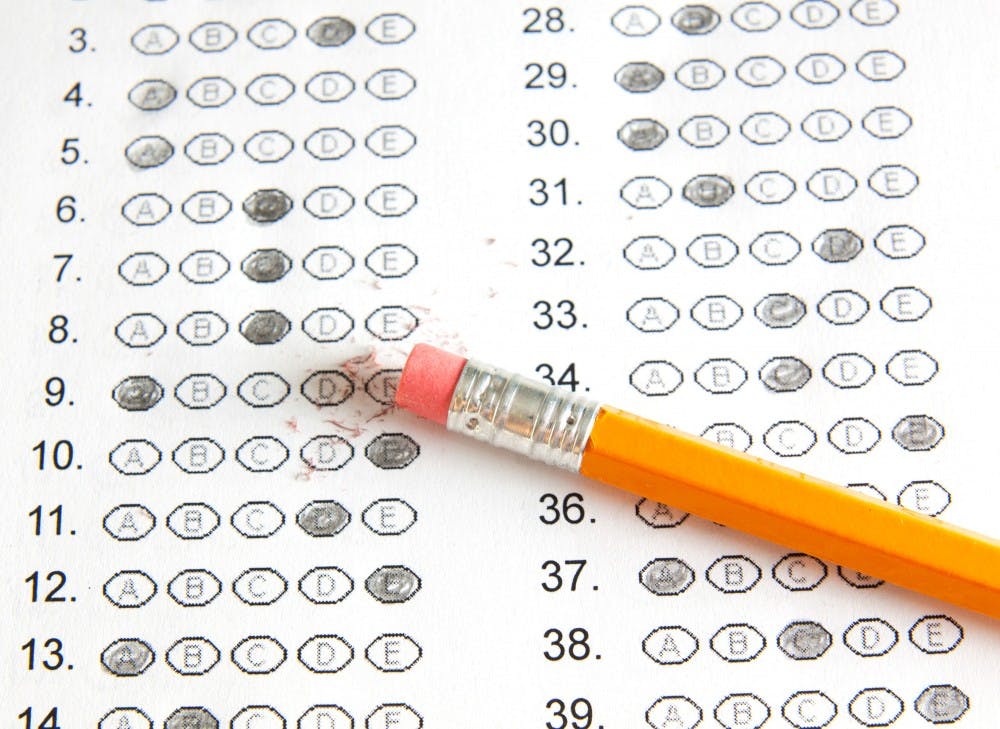Several pieces of legislation aimed at scaling back Standards of Learning test requirements for Virginia public schools have recently gained traction in Richmond.
SOL exams seek to offer a rough benchmark for student achievement in reading, math, science and social sciences, but the exams have faced significant criticism from teachers, parents and students.
Christian Braunlich, a member of the State Board of Education, a nine-member body appointed by the governor which oversees the state’s educational policies, said the various bills seek to accomplish a number of different goals, including changing test content and limiting the number of tests students have to take.
“There were generally a bunch that wanted to reduce the number of SOL tests, a bunch that wanted to offer expedited SOL exams and some that wanted [to make exams] portfolio based,” Braunlich said.
Portfolio-based exams, in which students are assessed through a body of work instead of by their performance on a single test, would replace the traditional assessments.
On Tuesday, Senate Bill 636, which reduces the number of SOL tests offered by 25 percent, was approved 37-2 by the upper chamber. House Bill 930, which also limits the number of SOLs taken by students, advanced out of the House Education Committee Wednesday.
“[HB 930] is probably the one gaining the most traction in the House,” Braunlich said. “To a large extent, it would reduce the number of SOL tests and would create a system by which localities would be able to create and administer an alternative assessment in some areas where SOL tests are not being given anymore.”
The bill would eliminate all elementary and middle school history and social science tests with the exception of Virginia studies, said Charles Pyle, a Virginia Department of Education spokesperson. The bill would also eliminate the fifth-grade writing and the third-grade science SOL exams.
Braunlich said there is a strong behavioral basis for reducing the number of SOL exams students are required to take.
“The reality is that midway through the school year, half the class is bored and half the class is struggling,” he said. “You have teachers [who] become crazy concerned about whether their kids pass the SOL exam, so they test them over and over again. Then parents complain there are too many tests, so now there’s a proposal to reduce SOL tests by 25 percent.”
High expectations from teachers are often coupled with pressure from school administrators, who also have a vested interest in making sure their students pass.
“School accreditation ratings reflect student achievement on SOL tests and other approved assessments,” Pyle said in an email.
In the past few years, the Department of Education has worked to introduce more challenging exams in mathematics, science, reading and writing that were administered to students online.
“[The new tests reflect] revised content standards adopted by the Board of Education to ensure that Virginia public school students are prepared for the challenges of the first year of college or meaningful entry-level employment when they graduate from high school,” Pyle said.
Braunlich, however, said better reforms can still be made.
“I think the most important reform we possibly could do would be to begin moving more quickly toward computer adaptive testing,” he said. “As a student takes a test, the test would adapt to their level.”
Computer adaptive tests, also known as tailored tests, continuously adjust to the level of each individual examinee. Though Braunlich acknowledged funding constraints for such technology, he still supports this type of advancement in the school setting.
“In a perfect world, [computer adaptive tests] would allow us to test a student when that student felt [s/he] knew the material, and once [s/he’s] done it, can move on to something else,” he said.
Virginia is unusual in regards to state-sanctioned standardized testing in that it administers more exams than are required by the federal government. According to Braunlich, though most states require students to take about 17 standardized tests, the state of Virginia requires students to take 34. Virginia is also one of the few states to offer tests in writing and the social sciences.
“If you take a look at Virginia writing, we’ve been increasing on the SAT, and that’s because we offer a writing test that’s not given in other states,” Braunlich said. “That’s one of the reasons why Virginia consistently ranks in top 10.”
The bills, however, still must leap over a few hurdles before becoming educational realities.
“Writing legislation in Virginia is a moving target,” Braunlich said. “[Legislators] are constantly making changes to [the bills] up to the last minute.”







